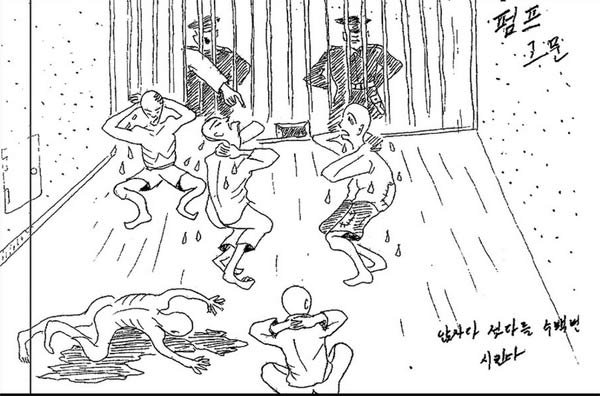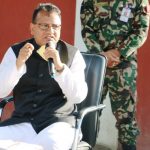Kushal Pokharel
Youth is a quite nebulous concept to define in the context of Nepal. While some view it as a social construct, it is a biological entity for others. Nevertheless, the social and political definition of youth is largely accepted in our country. Therefore, the youths constitute group of people possessing distinct social status, roles, and relationships. In Nepal, the, the National Youth Policy categorizes the population aged between 16-40 as youths. It is in contrast to United Nations demographic classification, which considers population between 15-24 as youths. Youths ingeneral are – more sensitive, energetic and enthusiastic than the population of other age group.
It would not be an exaggeration to say that youths can be an agent of social change. For instance, they played a significant role in the 2006 April uprising which ultimately abolished the 250 year old monarchy in Nepal. Moreover, they have made significant strides in demolishing ignorance and rejuvenating the ordinary citizens to live a meaningful life. Deconstructing the orthodox cultural and value systems while keeping the virtuous quality intact and moving the society towards progressive change has been the hallmark of majority of youth campaigns throughout the world. Whether it be the case of recent Arab revolution or the advancement of the Western societies, they have become instrumental in expediting socio-cultural and economic transformation of society. Despite the fact that some of the youths movements have lost their purpose due to politicization, those upholding the virtues of impartiality and integrity have played a pivotal role in making their society a better place to live in.
The development trajectories of the economically advanced countries of the world speaks a lot about the pivotal roles youths can play to accelerate the pace of development. Youthful vigor has led to advancement in industrialization and service sector of developed countries. Young entrepreneurs have played an important role in the GDP growth of developed countries like USA and UK. Similarly, East Asian economies of Singapore, Malaysia have also given much focus to produce young human capital for economic and social development. Such strategy has paid them excellent. Therefore, young talents in these countries are highly motivated to serve their nations in contrast to frustrated ones living in developing and less developed countries like ours. Against this backdrop, it is important to examine the reasons for such a pathetic outlook of youths who live in these countries.
Firstly, pro-youth policies are missing in developing countries. In other words, they have a low appreciation of the possible contributions that youths can make to transform the society. Consequently, policies are formulated to serve the interests of a handful of ruling elites who are predominantly old aged and are interested in expanding their patronage. Secondly, the youths are barred from occupying prominent positions in politics or in any social and economic profession despite their strong skill and ability. The problem here is primarily of the regressive mindset which doesn’t believe in sweeping reforms under youths. Owing to this, frustration among youths is likely to increase.
Frustration among youths is quite alarming because it may provoke conflict and violence in society. While the ability to tap the young talents can make a nation, negligence of a nation to provide better platform for youths can exacerbate myriads of social problems. In the words of Samuel Huntington, ‘youth bulge’ is an emphatic factor among others, that will lead to a chaotic 21st century. Whereas youths are said to be the wealth of the nation, he perceives the other side of the coin as well. In fact, the surging youth population- disenchanted and disillusioned poses an enormous challenge.
Examining the issue in Nepalese context depicts the picture of growing anti social activities like girl trafficking, drug abuse, abduction and torture among others. The creative minds of Nepal is on the one hand flying abroad for greener pastures. It, on the other hand, has become so frustrated with the entire social, economic and political system that taking arms was their preferred choice in the recent history. The evolution of Maoists insurgency would not have been a success without the involvement of youths in the so called emancipation movement against social injustice, discrimination and chronic poverty. Being lured by the prospect of a life full of happiness and liberty, young people had joined the People’s Liberation Army but to no avail. In the post-conflict situation, youths have still not been able to occupy a driving seat and implement their ideas which has further escalated tensions in the void political scenario.
It is distressing to state that Nepalese youths have become puppets of political parties. Declining land productivity, growing basic human needs and inclining aspirations of our people for better life has created such situation. Lack of better job opportunities and social security has aggravated this problem. Nepal doesn’t have many production based industries and those that exist suffer from politically motivated disruptions from numerous trade unions. Policy and institutional governance arrangements are extremely unfavorable not enabling young workforce to earn their livelihoods in a favorable working environment.
It is high time that youths potentiality be utilized for the entire development of the nation. The state needs to reconsider various aspects of public policy and administration to improve opportunities for youths. Pro-youth policies aimed at making the best use of the skills and abilities of youths to direct the country’s path of development need to be formulated and strictly implemented.
The writer is a Graduate in Development Studies and currently working as a freelancer.






